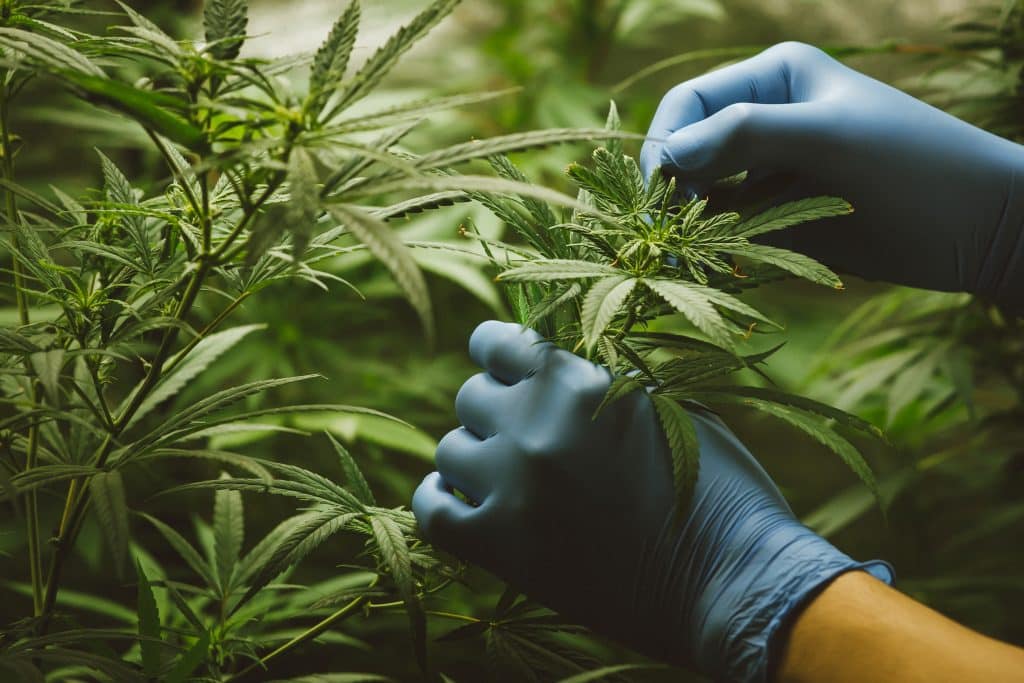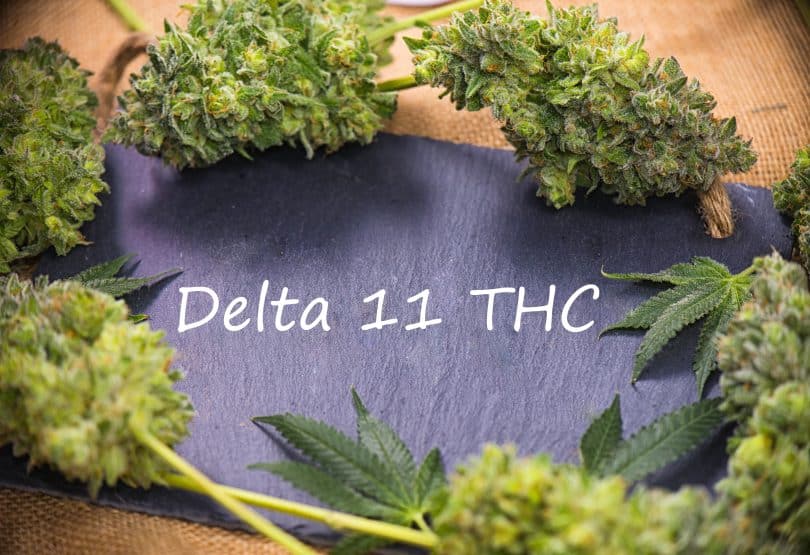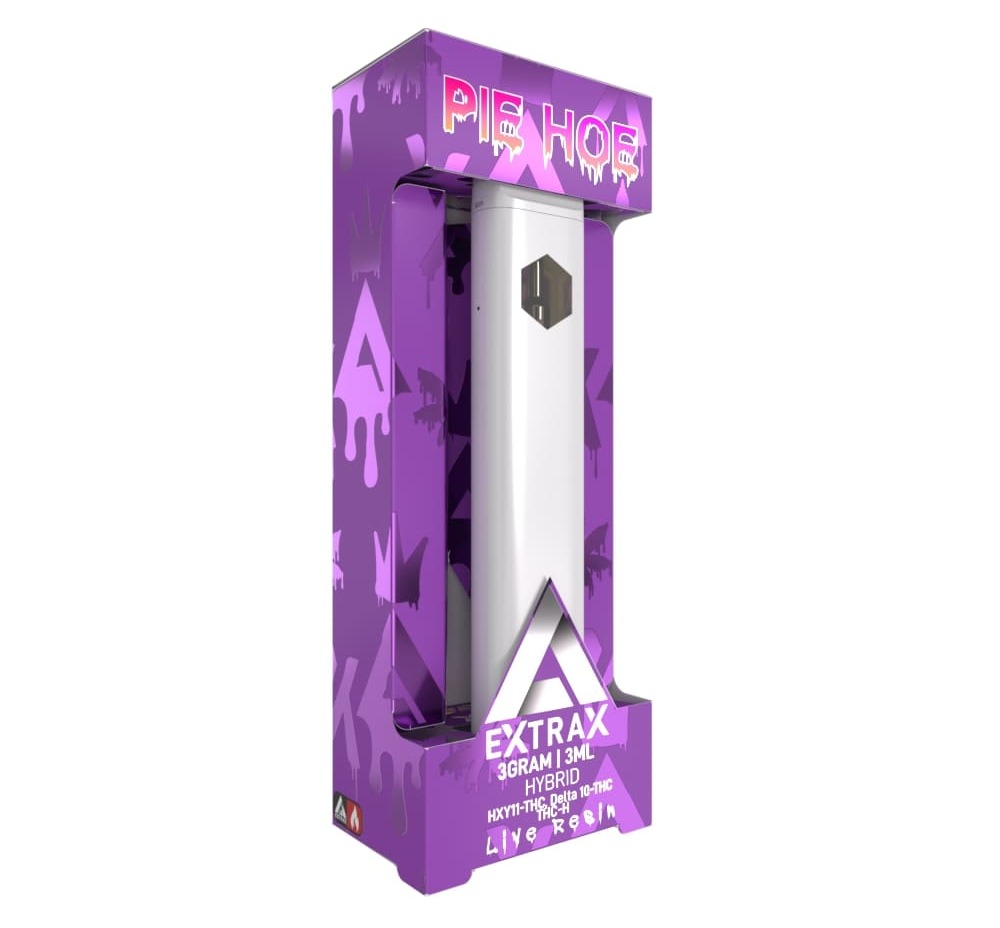To understand what Delta 11 THC is, you will first need to understand more about the compound 11-hydroxy-THC. So, 11-hydroxy-THC is one of our naturally occurring endocannabinoids; meaning it’s made in the body. When you eat plant-based THCs, such as delta-8 or delta-9 THC, and even synthetic ones like Delta 10, the body breaks it down and metabolizes it via the liver. 11-hydroxy-THC is a metabolite of the other tetrahydrocannabinols, and it’s much more potent. This new Delta 11 THC essentially takes 11-hydroxy, and turns it in an extract that can be vaped, so you don’t have to eat an edible and wait an hour for it to kick in.
To stay current on everything important happening in the industry, subscribe to The Cannadelics Weekly Newsletter. Also, it’ll get you premium access to deals on cannabis flowers, vapes, edibles, and much more! We’ve also got standout offers on cannabinoids, like HHC-O, Delta 8, Delta 9 THC, Delta-10 THC, THCO, THCV, THCP & HHC, which won’t kill your bank account. Head over to our “Best-of” lists to get these deals, and remember to enjoy responsibly!
More on 11-hydroxy-THC
Again, 11-hydroxy-THC is a highly-potent metabolite of the other tetrahydrocannabinols. This is why delta-8 THC edibles are just as strong as delta-9 edibles, but the same can’t be said for flowers or vape products. The process by which it’s created is known as first pass metabolism, and it’s the reason why ingesting cannabis products orally has much more intense and long-lasting effects compared to smoking.
So, if you’ve been wondering why edibles get you stoned beyond reason, this why. If you’re anything like me and many other cannabis users I’ve spoken to, edibles hit different (and more intensely) than smoking. Even though it takes a while to feel anything, once they kick in, I get a serious couch-lock effect – baked and tired. This seems to be commonplace when it comes to edibles; but why exactly do they differ so much from smoking, from a scientific standpoint?
It can be attributed to a couple of factors: the drug-metabolizing enzymes in your GI tract, and blood flow to the liver. When you first eat a cannabis edible, various enzymes in the GI tract begin digesting the food. From that point, blood flow from the GI tract goes through the liver where all these enzymes are metabolized, then the blood continues to general circulation throughout the rest of the body. When the metabolites are formed, that’s when you get the effects of 11-hydroxy-THC.
When you smoke cannabis, on the other hand, THC is absorbed through the lungs and distributed directly into the bloodstream. The active compounds make their way to the brain where they interact with the CB receptors that are part of the endocannabinoid system. In this scenario, you are feeling the effects of the phytocannabinoids (plant-cannabinoids) themselves, rather than the compound formed during metabolism.
Is 11-hydroxy-THC stronger than Delta 9 THC?
Although limited, the research we do have indicates that 11-hydroxy-THC is considerably stronger than delta-9 THC, which is the most popular of the existing THCs (delta 8, 9, 10). Some studies even claim that 11-hydroxy-THC is up to 7 times more potent than delta 9 THC, although that cannot be completely substantiated, and it can vary based on body chemistry and other factors.
Back in the 1970s is when this cannabinoid was initially noted, in radiolabled THC was utilized in labs to allow researchers to better study these compounds. Radiolabled THC (which yes, is radioactive) behaves just like regular THC but it allows scientists to see where all the metabolites go once it’s broken down within the body. This is how 11-hydroxy-THC was discovered.

At the time, very little 11-OH-THC was available, for obvious reasons, so for a very long time only small animal studies could be conducted. Once they had the ability create this compound on a larger scale, in a lab, seminal studies were launched to characterize the effects of 11-OH-THC in humans. Numerous studies of delta 11 taken intravenously showed it was not only more potent, but onset of effects was much quicker than other forms of THC also administered the same way.
Delta 11 THC? What is it, and is it legal?
Remember, Delta 11 THC and 11-hydroxy-THC are kind of the same thing, but not exactly. In chemistry, “delta” refers to the location of the double bond on a molecule’s carbon chain. In the case of THC, we have many different variations. With delta-9 THC, the double bond is on the 9th carbon chain. Move that bond over one spot to the 8th chain, and now we have delta-8 THC.
Keep moving that double bond and you get a variety of different delta THCs. Another way that we get variation in THCs is through differing types of side chains. Most delta THCs have alkyl side chains, but change them to hexyl or butyl and you get completely different compounds again, such as THC-P, THCV, THC-H, THC-O, THC-B, and so forth. This chain variation can be applied to other psychoactive cannabinoids like hexahydrocannabinol (HHC, also known as ‘HXC’). And we have been seeing more of this with the emergence of HHC-O/HXC-O and HHC-P/HXC-P.
THC and all of its isomers and analogues were considered illegal for a long time in the U.S., but when the US Farm Bill was revised in 2018, it allowed for the cultivation of hemp and production of hemp-derived products.The main provision there was that products sold could not have more than 0.3% delta 9 THC, but analogues were not explicitly mentioned. This led to the assumption that products containing trace cannabinoids can be sold legally under this loophole, but things remained convoluted for quite some time.
Then in 2020, the DEA released its Interim Final Rule to clarify some points of confusion in the farm bill. One of the main topics in this document, was synthetics. The Final Rule maintained that “All synthetically derived tetrahydrocannabinols remain schedule I controlled substances.” What it did not clear up, nor did the USDA Final Rule which came out the following year in 2021, is whether human processing of a trace compound constitutes “synthetic”, or if the fact that they do appear in nature allows them to still belong to the category of “naturally occuring”. And since Delta 11 THC is basically a synthetic copy of 11-hydroxy-THC, which is metabolite that occurs naturally within our own bodies, it falls into a sort of legal grey area. So technically, by default, it is legal to buy and sell, until a law that expressly bans it is passed.
Want to try Delta 11 THC for yourself? Then check out our product deal below, and subscribe to our weekly newsletter (sign up box at the top of the page), for more sales as they come up.
Save Big on Delta 11 Vape Carts and Disposables!
(Using “Delta25” coupon code)
Looking for a high-potency product? Try the new Delta-11 vape carts and disposables! This is the first set of Delta 11 products to hit the market, This new line of products offer Delta 11 THC / HXY11 carts (2 grams) and disposables (3 grams) in a variety of flavors: Girl Scout Cookies (cart), Mimosa (cart), Fire OG (disposable), Pie Hole (disposable), Lemonade Kush (disposable), and 24k Gold Punch (cart).
Get the carts for only $19.49/cart and the disposables for $33.74/vape when you use our coupon code.
TIP: Use the “Delta25” coupon code to save big on Delta 11 vape carts and disposables
Click HERE to stock up on Delta 11 vape carts and disposables
(Using “Delta25” coupon code)
Hello readers! We appreciate you joining us at Cannadelics.com, a top choice news platform for independent coverage of the growing cannabis and psychedelics landscapes of today. Come by the site whenever possible for updates on current and world-changing events, and head over to the Cannadelics Weekly Newsletter, so you’re always up on what’s going down.











A common mistake is confusing Delta 11 THC with 11-hydroxy THC, a metabolite found in the liver. These are two different things entirely. In fact, just simply do a Google search on “Delta 11 THC”, and you will see a lot of results for a THC metabolite called 11-hydroxy-THC, which isn’t the same thing as the natural phytocannabinoid Delta 11 THC.
– high times